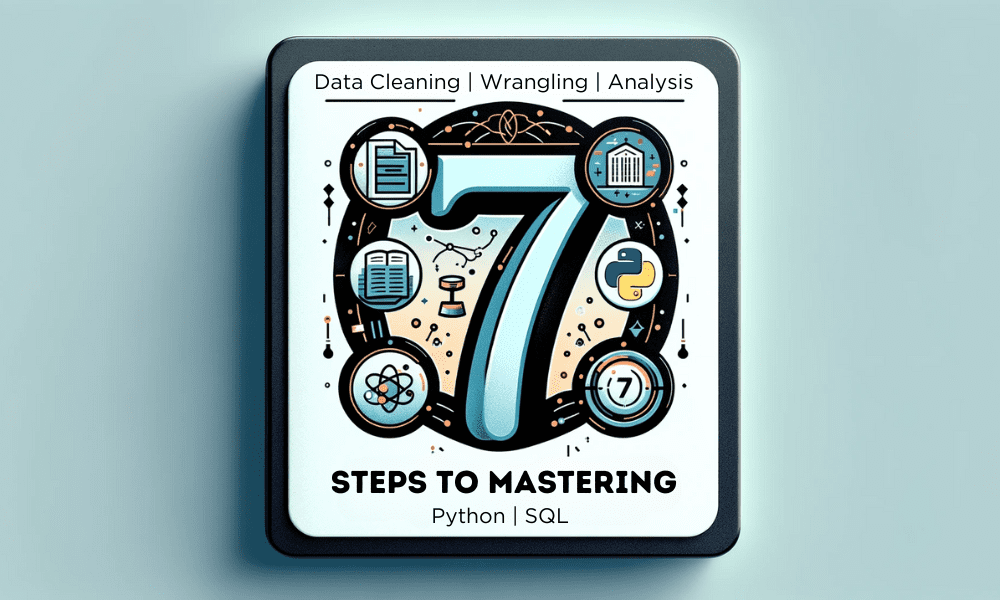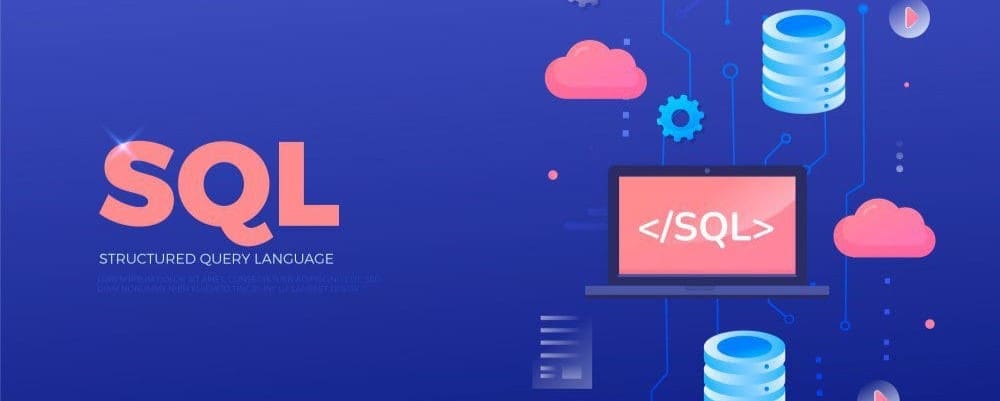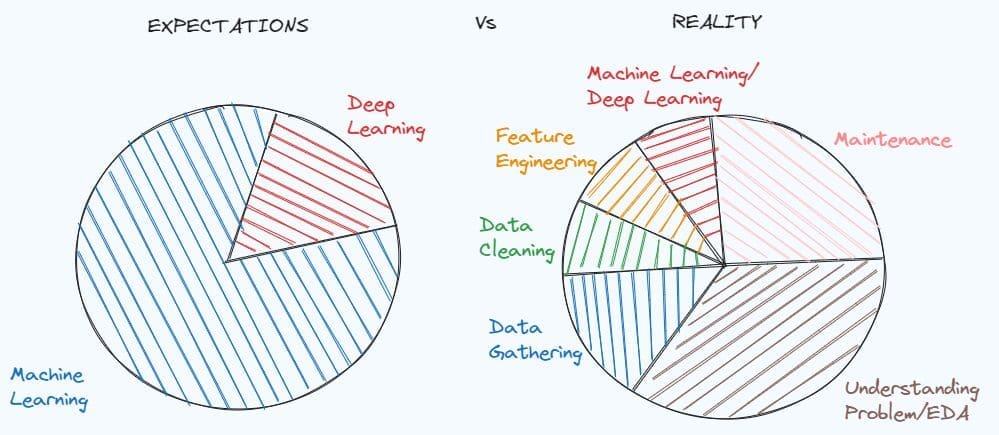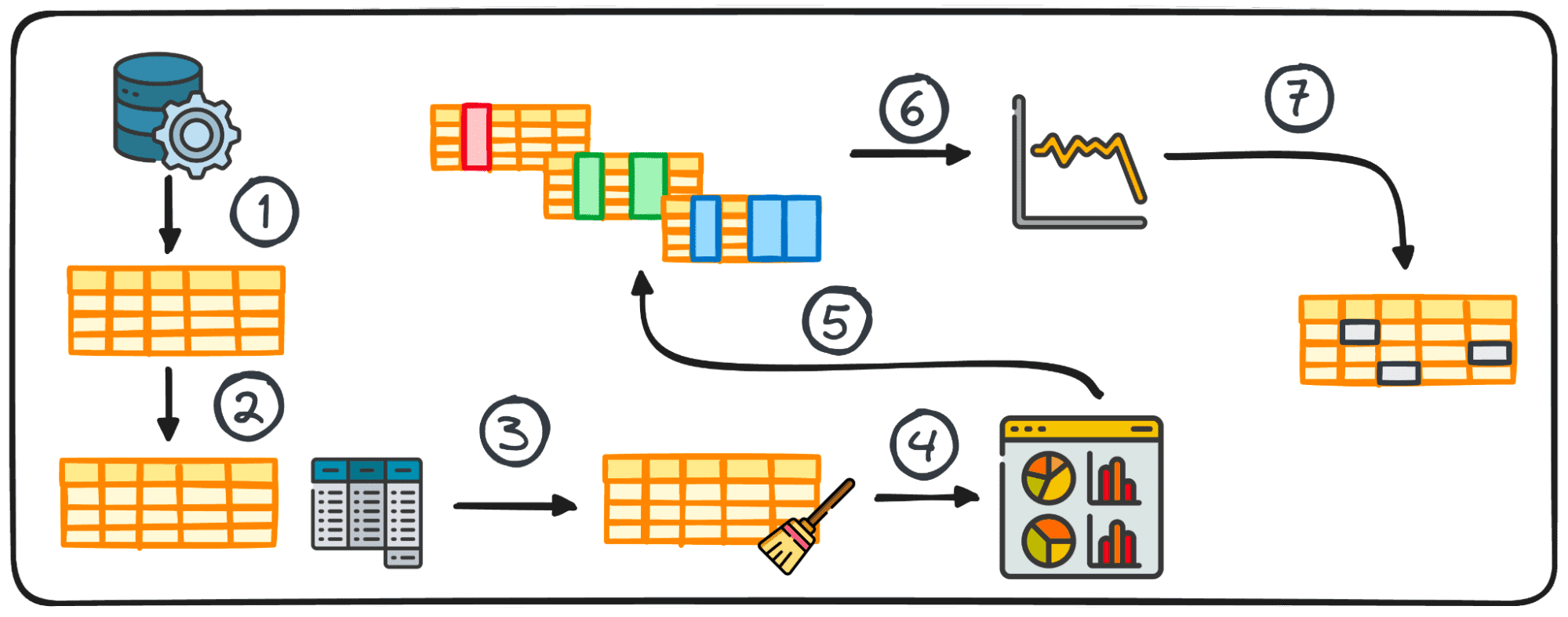
Image by Author
Data plays a crucial role in driving informed decision-making and enabling Artificial Intelligence based applications. As a result, there is a growing demand for skilled data professionals across various industries. If you are new to data science, this extensive collection of guides is designed to help you develop the essential skills required to extract insights from vast amounts of data.
Link: 7 Steps to Mastering SQL for Data Science

It is a step-by-step approach to mastering SQL, covering the basics of SQL commands, aggregations, grouping, sorting, joins, subqueries, and window functions.
The guide also highlights the significance of using SQL to solve real-world business problems by translating requirements into technical analyses. For practicing and preparation for data science interviews, it recommends practicing SQL through online platforms like HackerRank and PGExercises.
Link: 7 Steps to Mastering Python for Data Science

This guide provides a step-by-step roadmap for learning Python programming and developing the necessary skills for a career in data science and analytics. It starts with learning the fundamentals of Python through online courses and coding challenges. Then, it covers Python libraries for data analysis, machine learning, and web scraping.
The career guide highlights the importance of practicing coding through projects and building an online portfolio to showcase your skills. It also offers free and paid resource recommendations for each step.
Link: 7 Steps to Mastering Data Cleaning and Preprocessing Techniques

A step-by-step guide to mastering data cleaning and preprocessing techniques, which is an essential part of any data science projects. The guide covers various topics, including exploratory data analysis, handling missing values, dealing with duplicates and outliers, encoding categorical features, splitting data into training and test sets, feature scaling, and addressing imbalanced data in classification problems.
You will learn the importance of understanding the problem statement and the data with the help of example codes for the various preprocessing tasks using Python libraries such as Pandas and scikit-learn.
Link: 7 Steps to Mastering Data Wrangling with Pandas and Python

It is a comprehensive learning path for mastering data wrangling with pandas. The guide covers prerequisites like learning Python fundamentals, SQL, and web scraping, followed by steps to load data from various sources, select and filter dataframes, explore and clean datasets, perform transformations and aggregations, join dataframes and create pivot tables. Finally, it suggests building an interactive data dashboard using Streamlit to showcase data analysis skills and create a portfolio of projects, essential for aspiring data analysts seeking job opportunities.
Link: 7 Steps to Mastering Exploratory Data Analysis

The guide outlines the 7 key steps for performing effective Exploratory Data Analysis (EDA) using Python. These steps include data collection, generating statistical summary, preparing data through cleaning and transformations, visualizing data to identify patterns and outliers, conducting univariate, bivariate, and multivariate analysis of variables, analyzing time series data, and dealing with missing values and outliers. EDA is a crucial phase in data analysis, enabling professionals to understand data quality, structure, and relationships, ensuring accurate and insightful analysis in subsequent stages.
To begin your journey in data science, it’s recommended to start with mastering SQL. This will allow you to work efficiently with databases. Once you’re comfortable with SQL, you can dive into Python programming, which comes with powerful libraries for data analysis. Learning essential techniques like data cleaning is important, as it will help you maintain high-quality datasets.
Then, gain expertise in data wrangling with pandas to reshape and prepare your data. Most importantly, master exploratory data analysis to thoroughly understand datasets and uncover insights.
After following these guidelines, the next step is to work on a project and gain experience. You can start with a simple project and then move on to more complex ones. Write about it on Medium and learn about the latest techniques to improve your skills.
Abid Ali Awan (@1abidaliawan) is a certified data scientist professional who loves building machine learning models. Currently, he is focusing on content creation and writing technical blogs on machine learning and data science technologies. Abid holds a Master’s degree in technology management and a bachelor’s degree in telecommunication engineering. His vision is to build an AI product using a graph neural network for students struggling with mental illness.

